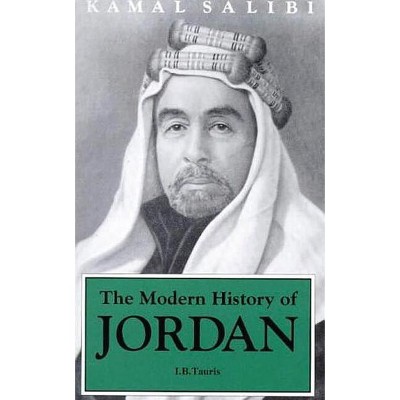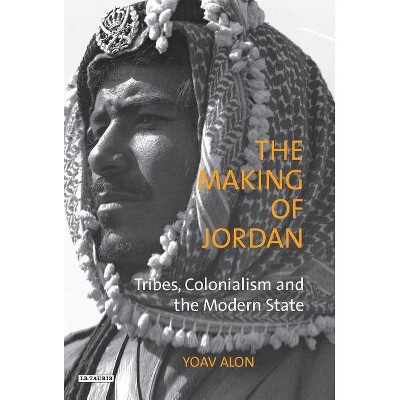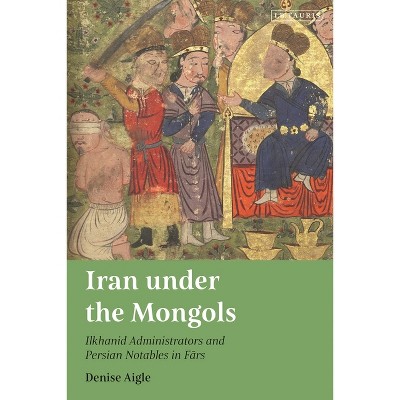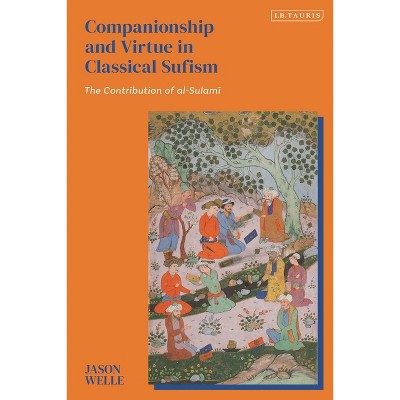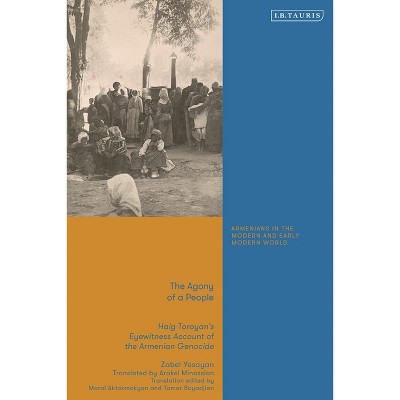Sponsored

Migrations in Jordan - by Jalal Al Husseini & Norig Neveu & Valentina Napolitano (Hardcover)
$115.99
In Stock
Eligible for registries and wish lists
Sponsored
About this item
Highlights
- Jordan currently hosts the second largest percentage of registered refugees in theworld: three million out of its eleven million inhabitants.
- About the Author: Jalal Al Husseini is an associate research fellow at the French Institute of the Near East (Ifpo) in Amman, Jordan.
- 304 Pages
- History, Middle East
Description
About the Book
"Jordan sheds important light on key issues around forced migration in the Middle East. This book is the first to study the long-term impact of multiple immigration flows on Jordanian society from 1948 to the present day. Part One investigates the criteria for integration and exclusion imposed by Jordan and international humanitarian organisations on different groups of refugees. Part Two analyses how state policy impacts the solidarity networks between different migrant communities and the different political, social, religious and family networks that are set up in camps and urban settings. Part Three turns to how migrants shape the Jordanian cityscape and geography themselves"-- Provided by publisher.Book Synopsis
Jordan currently hosts the second largest percentage of registered refugees in theworld: three million out of its eleven million inhabitants. Its experience in hosting
migrants and refugees precedes its independence in 1946, with the arrival of
Circassians, Chechens, and Armenians from the late 19th century. Jordan thus
constitutes a unique observatory for reception policies and long-term settlement of
different migrant groups.
Based on original empirical and archival material, this volume focuses on migrations
caused by conflicts, wars, and crises underscoring their articulation with longstanding
human mobility. It sheds light on the cumulative and processual dimensions
of Jordan's reception policies and migrants' settlement strategies. It identifies the
multiple actors involved in the management of migrants and, conversely, the latter's
contribution to the Jordanian social, economic, political, and urban fabric.
The first part of the volume examines the policies adopted by the Jordanian
authorities and international organizations to regulate access to basic services and to
the labour market, and explores the economic and political factors underlying them.
The second part analyzes the effects of Jordan's policies on the territorial distribution
and settlement of migrants. How have these policies, combined with the adaptation
strategies of migrants contributed to shaping new urban spaces? The third part
focuses on capacity of the migrants to activate, establish, (re)build, and intersect
different kinds of solidarity networks within the context of protracted displacement.
Review Quotes
Migrations in Jordan is an outstanding contribution to the Refugee Studies literature. Localising the transnational, this groundbreaking collection of interdisciplinary essays provides invaluable insights not only into processes of refugee-making, but also into the ways refugees have shaped, and continue to do so, Jordan's urban and social environment over time and space.
Jordi Tejel, Professor, University of Neuchâtel, Switzerland
This volume is an exciting contribution to understanding the extent to which migration - largely forced - has become integral to the evolving nature of the state in the Levant. Focussing on Jordan, the authors of this edited book historicize, excavate, and (re)construct the way in which movements of people from the Caucuses to North Africa engage with the state, with each other, and with their networks in places of origin. Grounded in disciplines as diverse as anthropology, architecture, geography, history, political science and sociology, this volume, made up of contributions largely of European and Jordanian scholars, showcases the interactive relations developed between the migrant and the host society in a contexts of crisis or conflict.
Dawn Chatty, Professor, University of Oxford, UK
About the Author
Jalal Al Husseini is an associate research fellow at the French Institute of the Near East (Ifpo) in Amman, Jordan.
Valentina Napolitano is a research fellow at the French National Research Institute for Sustainable Development (IRD) in Marseille, France. Norig Neveu is a research fellow at the French National Center for Scientific Research (CNRS) in Aix-en-Provence, France.Dimensions (Overall): 9.21 Inches (H) x 6.14 Inches (W) x .69 Inches (D)
Weight: 1.31 Pounds
Suggested Age: 22 Years and Up
Number of Pages: 304
Genre: History
Sub-Genre: Middle East
Publisher: Bloomsbury Publishing PLC
Theme: General
Format: Hardcover
Author: Jalal Al Husseini & Norig Neveu & Valentina Napolitano
Language: English
Street Date: July 25, 2024
TCIN: 93198475
UPC: 9780755606849
Item Number (DPCI): 247-37-2144
Origin: Made in the USA or Imported
If the item details aren’t accurate or complete, we want to know about it.
Shipping details
Estimated ship dimensions: 0.69 inches length x 6.14 inches width x 9.21 inches height
Estimated ship weight: 1.31 pounds
We regret that this item cannot be shipped to PO Boxes.
This item cannot be shipped to the following locations: American Samoa (see also separate entry under AS), Guam (see also separate entry under GU), Northern Mariana Islands, Puerto Rico (see also separate entry under PR), United States Minor Outlying Islands, Virgin Islands, U.S., APO/FPO
Return details
This item can be returned to any Target store or Target.com.
This item must be returned within 90 days of the date it was purchased in store, shipped, delivered by a Shipt shopper, or made ready for pickup.
See the return policy for complete information.






